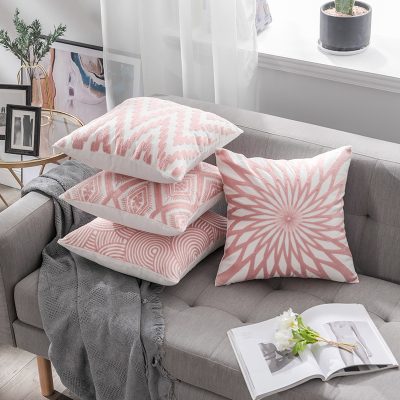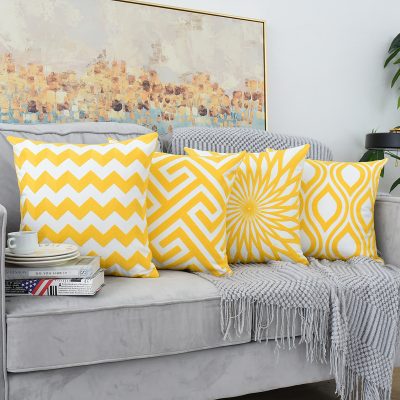Using hypoallergenic pillowcases can be a helpful strategy for improving sleep if you have allergies. Allergies can disrupt your sleep by causing congestion, sneezing, itching, and other uncomfortable symptoms. Here are some tips on how to choose and use hypoallergenic pillowcases to sleep better:
- Select Hypoallergenic Materials:
- Look for pillowcases made from hypoallergenic materials such as microfiber, cotton, or silk. These materials are less likely to trap allergens like dust mites, pet dander, and pollen.
- Avoid pillowcases made from wool or down feathers, as they can trigger allergies in some people.
- Encase Pillows in Allergen-Proof Covers:
- Consider using allergen-proof pillow encasements or covers in addition to hypoallergenic pillowcases. These covers are specially designed to keep allergens out of your pillows.
- Regularly Wash Pillowcases:
- Wash your pillowcases, along with your sheets and blankets, in hot water at least once a week. High-temperature washing can help kill dust mites and remove allergens.
- Use a mild, hypoallergenic laundry detergent to avoid any skin irritation.
- Choose Light Colors:
- Light-colored pillowcases may show allergens more clearly than dark ones, making it easier to spot when they need washing.
- Frequent Pillow Cleaning:
- Some pillows are machine washable; check the care label on your pillow. Washing your pillow periodically can help reduce allergen buildup.
- If your pillow is not machine washable, consider replacing it with a hypoallergenic pillow.
- Maintain a Clean Bedroom:
- Vacuum your bedroom regularly using a vacuum cleaner equipped with a HEPA filter to capture allergens from carpets and floors.
- Keep windows closed during high pollen seasons, and use air purifiers with HEPA filters to improve indoor air quality.
- Personal Allergy Management:
- If you have specific allergies, such as pet allergies, take steps to minimize exposure to allergens in your bedroom. For example, keep pets out of the bedroom and wash their bedding regularly.
- Consult an Allergist:
- If allergies severely affect your sleep and quality of life, consider consulting an allergist. They can perform allergy tests and recommend specific treatments or medications to manage your allergies.
- Allergy Medications:
- Over-the-counter or prescription allergy medications can help relieve allergy symptoms and make it easier to sleep.
- Maintain Good Sleep Hygiene:
- Besides managing allergies, maintain good sleep hygiene practices, such as keeping a consistent sleep schedule, creating a comfortable sleep environment, and practicing relaxation techniques before bedtime.
Remember that everyone’s allergies and sensitivities are unique, so you may need to experiment with different strategies to find the combination that works best for you. If your allergies are severe and impacting your sleep significantly, consider seeking advice from a healthcare professional or allergist for personalized guidance and treatment options.




















